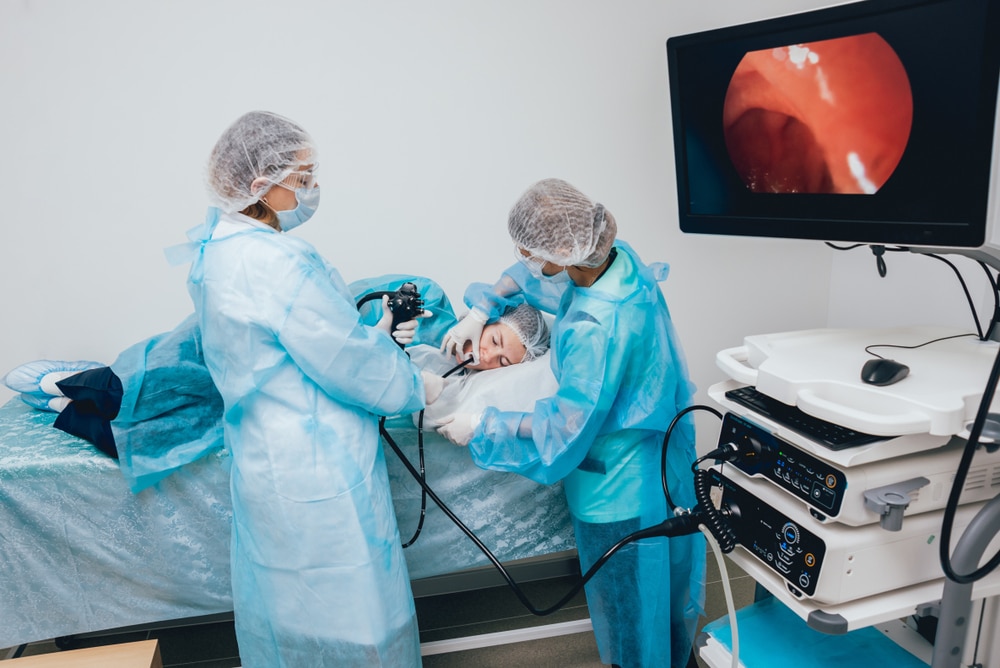Diagnosis of Barrett's Esophagus
Who should be tested for Barrett’s esophagus?
Your doctor may recommend testing for Barrett’s esophagus if you have weekly symptoms of gastroesophageal reflux disease (GERD) for 5 or more years and at least three other risk factors for Barrett’s esophagus.3
How do doctors diagnose Barrett’s esophagus?
Doctors most often diagnose Barrett’s esophagus with an upper gastrointestinal (GI) endoscopy and a biopsy. Your doctor may also use a pill-shaped capsule device that you swallow to test for Barrett’s esophagus.
Upper GI endoscopy and biopsy
Upper GI endoscopy is a test in which a doctor uses an endoscope to see inside your upper GI tract. The test may show changes in the lining of your esophagus.
During upper GI endoscopy, a doctor takes biopsies by passing small tweezers through the endoscope. You will not feel the biopsies. A pathologist will look at the tissue under a microscope to check for Barrett’s esophagus cells.
Barrett’s esophagus can be hard to diagnose because it doesn’t affect all the tissue in your esophagus. The doctor will take biopsy samples from multiple areas of the lining of your esophagus.3
 Doctors typically diagnose Barrett’s esophagus with an upper GI endoscopy and a biopsy.
Doctors typically diagnose Barrett’s esophagus with an upper GI endoscopy and a biopsy.
Repeat endoscopy
If you have Barrett’s esophagus, your doctor may repeat upper GI endoscopy and biopsy on a specific schedule to check for abnormal cells or cancer. Doctors call this approach surveillance.
Your doctor will talk with you about how often you may need a repeat endoscopy. Your doctor may recommend repeating the test more often if you have abnormal cells or cancer.
Capsule tests
To test for Barrett’s esophagus, some doctors may use a pill-shaped capsule device that you swallow. The capsule is attached to a thin string and has either a small sponge or balloon inside.
After you swallow the capsule, the sponge or balloon device expands. A health care professional then pulls the string to remove the device. On its way out, the device collects small samples of tissue from your esophagus.
The samples are tested for signs of Barrett’s esophagus.
Reference
This content is provided as a service of the National Institute of Diabetes and Digestive and Kidney Diseases
(NIDDK), part of the National Institutes of Health. NIDDK translates and disseminates research findings to increase knowledge and understanding about health and disease among patients, health professionals, and the public. Content produced by NIDDK is carefully reviewed by NIDDK scientists and other experts.
